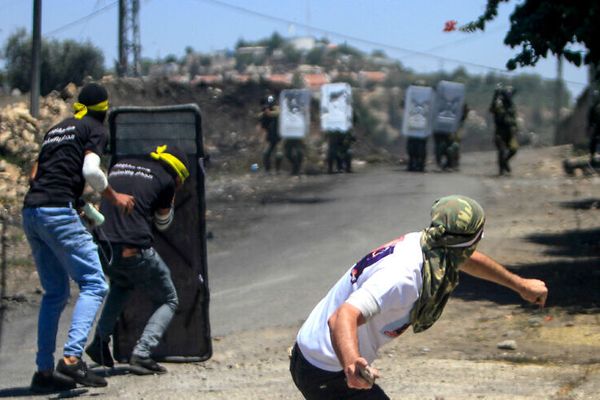Even as the attackers, Palestinians are paradoxically framed as victims, while Israel is cast as the provocateur of their ‘justifiable’ anger.
By Rachel O’Donoghue, HonestReporting
Since Hamas’s brutal October 7 massacre in southern Israel, another warfront has been simmering in the West Bank (Judea and Samaria).
Hamas and Islamic Jihad cells, operating throughout Palestinian towns and cities, have escalated their terror attacks against Israelis. Since October 7, more than 4,000 attacks have been reported from the West Bank alone, including an attempted mass-casualty suicide bombing in Tel Aviv last month and a deadly stabbing outside a mall in Gan Yavne.
In response, the IDF has launched numerous counterterrorism operations, targeting heavily-armed terrorists in these areas. They face the added challenge of uncovering bombs buried beneath roads, using bulldozers to dig under the asphalt.
Israeli military officials have emphasized that these operations are aimed at preventing major terror attacks, with nighttime raids targeting terror leaders, operatives, and bomb labs. However, they acknowledge that while commanders and bomb makers will eventually be replaced, reestablishing bomb-making facilities will take more time.
This volatile situation in the West Bank was the focus of a Sky News segment titled, “Could Israel face a third intifada in the West Bank?” featuring security analyst Michael Clarke.
While Clarke acknowledged the flow of Iranian money and weapons fueling Palestinian terror in the West Bank, unfortunately, parts of his analysis were marked by conjecture and unsubstantiated insinuations.
Suspicion Cast on Israeli Motives
From the outset, Clarke casts doubt on the legitimacy of the IDF’s operations. He acknowledges that the IDF claims its actions are based on intelligence about imminent terrorist attacks, but conspiratorially adds: “Do they really have intelligence of plots that were about to be triggered? Most of us think that’s less likely.”
Who exactly this “most of us” refers to is left unclear. He conveniently ignores the numerous recent terror attacks thwarted by the IDF, such as the case in March, when a would-be suicide bomber en route to Tel Aviv was stopped at a military checkpoint after traveling from his home in Jenin.
Clarke then suggests that Israel’s actions could “trigger a third intifada,” likening the situation to the early 2000s and predicting a “general uprising” because there are “three and a half million people in the West Bank who are very, very angry with Israeli security forces.”
He implies that this anger stems from Israel’s so-called “aggressive” counterterrorism strategy:
“The bulldozers that we see are very a symbol of all of this because Israelis claim correctly that Palestinian militants are planting bombs in the roads… but the response of the Israelis to that is to take up the whole road, in a sense, to punish the neighborhood by saying that if you allow these people to plant bombs in your road, you’ll lose the road, and that’s a very aggressive counterterrorist technique.”
First, and this shouldn’t need to be stated repeatedly, the argument that Israel’s defensive actions are “triggering” further violence is absurd. It implies that Israel should allow its civilians to be murdered in the streets because preventing those deaths might provoke the attackers even more.
Second, the violence Clarke refers to during the Second Intifada was not an “uprising” against military forces or the Israeli presence in the West Bank. These were campaigns of terror targeting civilians inside Israel. The Dolphinarium discotheque massacre, the Sbarro pizza bombing, and countless shootings and stabbings weren’t acts of resistance against soldiers or “the occupation.” They were cold-blooded attacks on ordinary people.
Third, Clarke’s claim that the IDF uses bulldozers to “punish” Palestinians ignores the plain reality. Bulldozers are essential for uncovering bombs buried beneath roads, preventing IDF soldiers from being blown up.
In the end, Clarke’s analysis—presented by Sky News as expert opinion and left unchallenged—follows a familiar pattern, the eternal paradigm the media refuses to abandon. Even as the attackers, Palestinians are paradoxically framed as victims, while Israel is cast as the provocateur of their “justifiable” anger.
